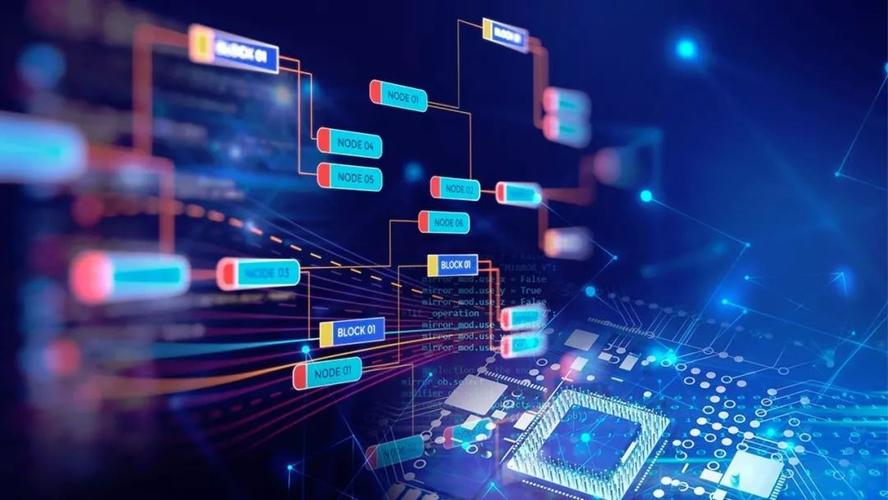Title: Exploring the Intersection of Blockchain and Genetic Sequencing: Potential Synergies and Challenges

Blockchain technology and genetic sequencing, two seemingly disparate fields, are increasingly converging, offering unique opportunities and challenges. In this exploration, we delve into the intersection of blockchain and genetic sequencing, examining potential synergies and outlining key considerations for their integration.
1. Introduction
Blockchain technology, renowned for its decentralized and immutable ledger, has revolutionized various industries, from finance to supply chain management. On the other hand, genetic sequencing, propelled by advancements in biotechnology, has unlocked insights into human health and evolution. The convergence of these fields holds promise for enhancing data security, privacy, and accessibility in genetic research and healthcare.
2. Potential Synergies
Data Security and Integrity
: Blockchain's cryptographic algorithms ensure secure and tamperproof storage of genetic data, mitigating the risk of unauthorized access or data manipulation. This fosters trust among stakeholders, including researchers, clinicians, and patients, thereby facilitating data sharing and collaboration.
Transparent Data Ownership and Consent Management
: Blockchain enables individuals to retain ownership of their genetic data and exercise granular control over its usage through smart contracts. This empowers individuals to grant or revoke consent for data sharing or research participation, enhancing privacy and ethical standards.
Interoperability and Data Exchange
: By establishing a decentralized network of genetic data repositories, blockchain facilitates seamless data exchange and interoperability among disparate healthcare systems and research institutions. This enables efficient data aggregation for largescale genomic studies and personalized medicine initiatives.
Incentivized Data Sharing
: Blockchainbased incentive mechanisms, such as tokenized rewards or royalties, incentivize individuals to contribute their genetic data for research purposes while ensuring fair compensation and acknowledgment. This promotes greater participation in genomic research and accelerates scientific discoveries.3. Key Challenges and Considerations
Scalability and Performance
: The scalability of blockchain networks remains a significant challenge, particularly when handling largescale genetic datasets with high throughput requirements. Innovative consensus mechanisms and offchain scaling solutions are essential to address these scalability limitations without compromising data security.
Privacy and Regulatory Compliance
: While blockchain enhances data security, ensuring compliance with privacy regulations such as GDPR and HIPAA remains paramount, especially in the context of sensitive genetic information. Implementing privacypreserving techniques, such as zeroknowledge proofs or homomorphic encryption, can safeguard data privacy while facilitating regulatory compliance.
Data Quality and Standardization
: Maintaining data quality and standardization is crucial for ensuring the reliability and reproducibility of genetic research outcomes. Blockchain can facilitate data provenance and lineage tracking, enabling researchers to trace the origin and processing history of genetic data, thereby enhancing data quality assurance.
Ethical and Societal Implications
: The intersection of blockchain and genetic sequencing raises complex ethical dilemmas, including concerns regarding consent, genetic discrimination, and equitable access to healthcare. Engaging stakeholders in transparent dialogue and establishing ethical guidelines and governance frameworks are essential to address these ethical considerations responsibly.4. Future Directions and Recommendations
Research and Development
: Continued research and development efforts are needed to address the technical challenges and optimize the integration of blockchain and genetic sequencing. Collaborative initiatives involving interdisciplinary expertise from blockchain developers, geneticists, ethicists, and policymakers can drive innovation in this emerging field.
Education and Awareness
: Enhancing public awareness and literacy regarding the benefits, risks, and ethical implications of blockchainenabled genetic data sharing is essential for fostering informed decisionmaking and promoting responsible use of technology in healthcare and research.
Regulatory Frameworks
: Policymakers and regulatory bodies play a crucial role in establishing clear guidelines and regulatory frameworks to govern the ethical and legal aspects of blockchainbased genetic data management. Close collaboration between industry stakeholders and policymakers can ensure that regulatory frameworks strike a balance between innovation and protection of individual rights.5. Conclusion
The convergence of blockchain and genetic sequencing holds immense potential to revolutionize healthcare, research, and personalized medicine. By addressing key challenges and leveraging synergies between these fields, we can unlock new opportunities for secure, transparent, and ethically responsible management of genetic data, ultimately advancing human health and scientific knowledge. Embracing collaboration, innovation, and ethical stewardship will be instrumental in realizing the full transformative impact of this convergence.
Exploring the Intersection of Blockchain and Genetic Sequencing: Potential Synergies and Challenges
Blockchain technology, renowned for its decentralized and immutable ledger, has revolutionized various industries, from finance to supply chain management. On the other hand, genetic sequencing, propelled by advancements in biotechnology, has unlocked insights into human health and evolution. The convergence of these fields holds promise for enhancing data security, privacy, and accessibility in genetic research and healthcare.
- Data Security and Integrity: Blockchain's cryptographic algorithms ensure secure and tamperproof storage of genetic data, mitigating the risk of unauthorized access or data manipulation. This fosters trust among stakeholders, including researchers, clinicians, and patients, thereby facilitating data sharing and collaboration.
- Transparent Data Ownership and Consent Management: Blockchain enables individuals to retain ownership of their genetic data and exercise granular control over its usage through smart contracts. This empowers individuals to grant or revoke consent for data sharing or research participation, enhancing privacy and ethical standards.
- Interoperability and Data Exchange: By establishing a decentralized network of genetic data repositories, blockchain facilitates seamless data exchange and interoperability among disparate healthcare systems and research institutions. This enables efficient data aggregation for largescale genomic studies and personalized medicine initiatives.
- Incentivized Data Sharing: Blockchainbased incentive mechanisms, such as tokenized rewards or royalties, incentivize individuals to contribute their genetic data for research purposes while ensuring fair compensation and acknowledgment. This promotes greater participation in genomic research and accelerates scientific discoveries.
- Scalability and Performance: The scalability of blockchain networks remains a significant challenge, particularly when handling largescale genetic datasets with high throughput requirements. Innovative consensus mechanisms and offchain scaling solutions are essential to address these scalability limitations without compromising data security.
- Privacy and Regulatory Compliance: While blockchain enhances data security, ensuring compliance with privacy regulations such as GDPR and HIPAA remains paramount, especially in the context of sensitive genetic information. Implementing privacypreserving techniques, such as zeroknowledge proofs or homomorphic encryption, can safeguard data privacy while facilitating regulatory compliance.
- Data Quality and Standardization: Maintaining data quality and standardization is crucial for ensuring the reliability and reproducibility of genetic research outcomes. Blockchain can facilitate data provenance and lineage tracking, enabling researchers to trace the origin and processing history of genetic data, thereby enhancing data quality assurance.
- Ethical and Societal Implications: The intersection of blockchain and genetic sequencing raises complex ethical dilemmas, including concerns regarding consent, genetic discrimination, and equitable access to healthcare. Engaging stakeholders in transparent dialogue and establishing ethical guidelines
标签: 区块链和基因链的关系 基因区块链技术方向 区块链基于什么协议
版权声明:除非特别标注,否则均为本站原创文章,转载时请以链接形式注明文章出处。







